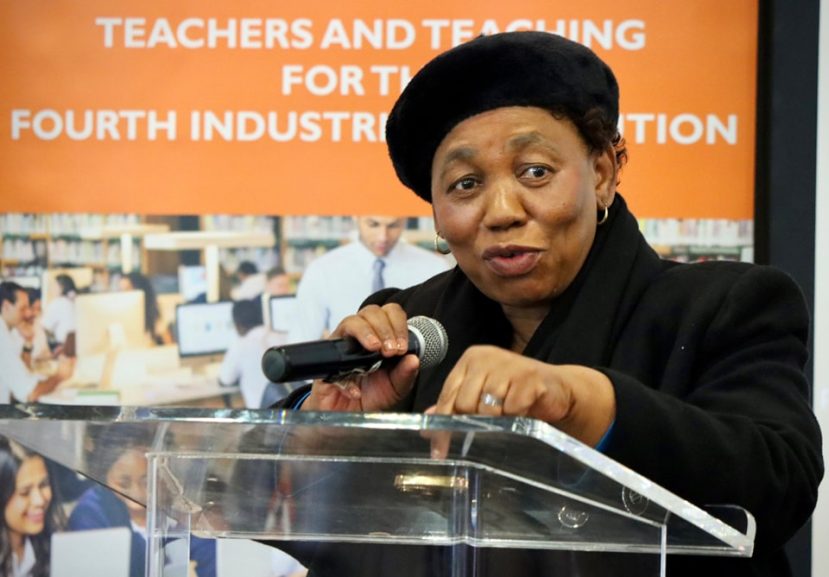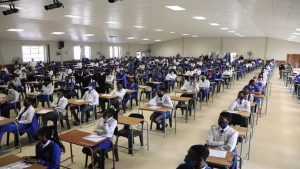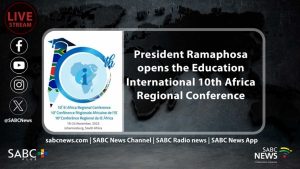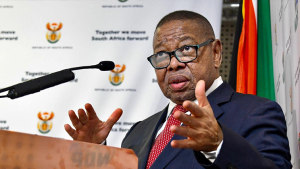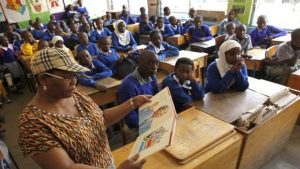Since the transition from apartheid to democracy 30 years ago, there has been significant development in the transformation of South African education. The African National Congress (ANC), the ruling party, has revised education policy and extended education opportunities by enacting major policy changes that cover early childhood development, basic education, and higher education. But more still needs to be done.
Even with the expansion of educational opportunities and growing enrolment numbers, there is still a deficiency in children attending Early Childhood Development (ECD) programs, otherwise known as preschool.
The three phases of education in South Africa face different challenges that need policy alteration and political parties appear to be using that to their advantage in the upcoming National and Provincial Elections 2024.
Literacy levels at the foundation phase of Basic Education are relatively low, which is very alarming, the state of school facilities, particularly in rural areas, leaves much to be desired. South Africa ranks amongst the worst in the world.
At the tertiary level, although the National Student Financial Aid Scheme (NSFAS) exists to help students from poor backgrounds and the so-called ‘missing middle’, many students still struggle to afford their studies.
There is also a growing demand for higher education and a lack of capacity in the current system, yet there appears to be a gap between the skills produced by higher education institutions and the job market. South Africa seems to be producing graduates faster than the economy can absorb them.
Parties’ manifestos on education reform
In this article, we look at the manifestos of the current top five political parties in their quest to change the country’s education system after the 29 May elections. The parties – the ruling African National Congress (ANC), the Democratic Alliance (DA), the Economic Freedom Fighters (EFF), the Freedom Front Plus (FF+) and the Inkatha Freedom Party (IFP) – have all set their sights on the transformation and administration of the country’s education system.
Foundation phase
A child’s education from a very early age is crucial – it is a vital window of opportunity to shape a child’s holistic development and lay the foundations for their future.
Many experts say that early learning establishes the foundation for schooling and long-term success. One of the pressing issues at this phase is that not enough children are attending Early Childhood Development (ECD) programmes.
The 2022 Census by Statistics South Africa showed that:
· Only 36% of children aged 0–4 years were attending a Crèche/Educare centre, and
· 7,3% of 0–4-year-olds were attending pre-school/nursery school/Grade 00/Grade 000/Grade R
· Approximately one out of ten (10%) children spent the day with a day mother/childminder,
· While around 6% were cared for at a home/community playgroup
· And roughly two-fifths (39,8%) of South African children aged 0–4 years were not attending any ECD programmes.
One of the main reasons we see low attendance in preschool programmes in South Africa is that the majority of ECD providers charge fees. Parents often wait until their child is 6 or 7 years old for free education due to limited government subsidies and fees for early childhood education programmes outside of public schools.
The ANC and EFF base their ECD manifestos points on the Basic Education Laws Amendment (BELA) Bill currently in parliament.
The BELA Bill proposes to make Grade R the compulsory start of school. Grade R, which currently forms part of early childhood development (ECD), will expand to 7 888 schools under the new mandate if passed.
In addition to making Grade R compulsory, the bill seeks to criminalise parents who fail to ensure their children attend school, with potential jail time as a consequence. It also states that anyone disrupting school activities is liable to a maximum of 12 months in prison.
The ANC says it will ensure “universal access to quality early child development by 2030”.
The EFF agrees with the ANC on the BELA Bill as it also wants parents jailed for not taking their children to school. Their manifesto states that: “The EFF government will make universal provision for early childhood development (ECD) programs and will make it compulsory for children from the ages of three years”, adding taht, “The EFF government will also criminalise all parents who do not take their children to school.”
The IFP, on the other hand, says it will “prioritise Early Childhood Development (ECD) programmes for a strong foundation ensuring that all children have access to ECD programmes”.
Basic Education
One of the most pressing issues of basic education is the quality of education and levels of literacy. According to the most recent Progress in International Reading Literacy Study (PIRLS), 81% of Grade 4 learners in South Africa are unable to read for meaning, particularly those coming from the rural provinces.
The PIRLS findings reveal problems with teaching and learning in pre-Grade R and the Foundation Phase.
The DA in their 7 Apex Priorities has vowed to triple the number of grade four learners who can read for meaning. The opposition party says they plan to rescue South Africans from a failing education system, by ensuring that each child gets 210 full teaching days per year, making sure that teachers are competent, and that sufficient time is dedicated to developing children’s ability to read, write and calculate.
They will do this by:
· Devoting the first two hours of each school day in the Foundation Phase (Grade R –Grade 3) to developing reading and writing skills.
· Devoting one hour each day in the Foundation Phase to numeracy skills.
· Introducing a national literacy and numeracy test at the end of the Foundation Phase
The ANC says they will:
· Foster a culture of reading, numeracy and technological skills;
Meanwhile, the EFF says:
· The EFF government will improve the literacy, numeracy levels of learners in all public schools by promoting a culture of learning from Grade R.
In terms of the state of infrastructure – while progress has been made in improving the infrastructure at schools in South Africa from 1994, there is still work to be done to ensure that all schools have safe and suitable learning environments.
In 2024, there are still mud schools, schools with a lack of access to water and sanitation. Rural provinces such as Eastern Cape, together with Limpopo and KwaZulu-Natal bear the brunt of this and account for the majority of the national school infrastructure backlogs.
The EFF says:
· The EFF government will ensure that all schools have access to adequate sanitation, and that pit latrines are completely eradicated and replaced with safe and adequate flushing toilets.
IFP says it will:
· Address underfunding by restructuring the education budget to improve infrastructure and resources in schools.
Higher Education
Higher Education is one of the topical issues in the country since the days of the late former Minister of Education, Kader Asmal who saw the renaming and amalgamating of tertiary institutions from apartheid to democratic institutions. The Introduction of the National Student Financial Scheme (NSFAS) back in 1999 replaced the Tertiary.
Education Fund of South Africa (TEFSA), the scheme has benefited millions of students and continues to serve as a tool of transformation and equaliser in the university auditoriums.
However NSFAS in the past few years has not lived up to all its expectations, due to many administrative problems and dysfunction.
Just in this past week, the NSFAS board was resolved due to its inability to carry out basic responsibilities and we have also seen students protesting due to NSFAS not being able to distribute their student allowance.
Political parties are promising to change the system for the better.
The ANC in its manifesto says it plans to:
· Fast track the public provision of student residences, using current expenditure on subsidies from NSFAS, to address the backlog in student accommodation.
The DA has vowed to reform NSFAS into a tiered system of bursaries and loans. In what seems to be a reversal of what has already been achieved, the party wants students to carry a debt burden when they graduate as it says the following:
· Establishing an effective debt collection system by collaborating with the South African Revenue Services, the Credit Bureau, and potential employers.
· Proposing that students pay back a portion of the costs of their studies based on their ability to pay.
· Providing flexible repayment conditions to maintain affordability.
Meanwhile, the EFF says:
· Its government will ensure the stabilisation of NSFAS and improve its administrative system to enable smooth application;
· It will also make sure that NSFAS upholds its mandates. “The EFF government will increase the intake at institutions of higher learning at both universities and TVETs by 20% annually.”
· “Bursaries for learners who perform well should be awarded based on merit and financial need in cooperation with various private industries on condition that for every year of study, the student must work one year for the relevant company.”
When it comes to skills development and catering to capacity demands in higher education:
The FF Plus seeks merit-based bursaries for students, who after completing University or TVET colleges; and they say these young people must be placed in relevant industries to acquire skills.
The IFP which has a strong footprint in the province of KwaZulu-Natal is advocating for increased investment in TVET colleges to provide relevant skills and job market training, and for universities to handle NSFAS administration due to corruption and lack of transparency.
All things considered, some of the five major parties’ manifestos seem good and contain some creative ideas. They primarily concentrate on improvements to the educational system, but their main flaw is that they don’t discuss how to implement the policies efficiently.
No matter what the results outcomes of the election are, after the 29th of May, the next five years should be dedicated to addressing implementation issues and evaluating the outcomes of the new policies in education.
Zinziswa Mani is a Specialist Researcher with the SABC News & Current Affairs division


